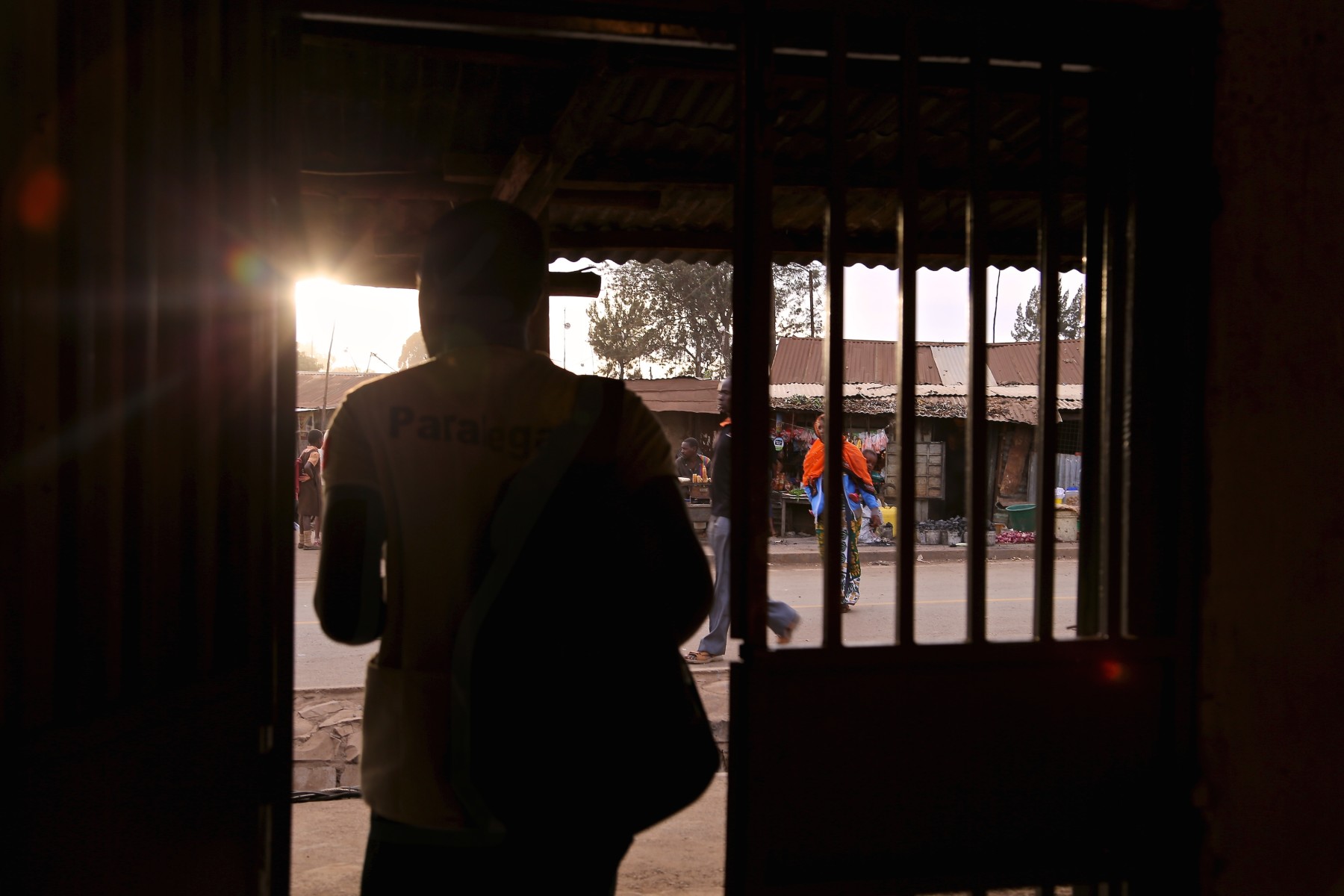Stories
Citizenship and Identity Documents in Kenya: Suleiman’s Story
Suleiman is 38 years old and lives in the Kambi Muru district of Kibera, Nairobi. He faced endless difficulties trying to find out how to apply for a second generation Kenyan national ID card. Without that ID, Suleiman knew he couldn’t be employed, couldn’t access a bank, or even use M-Pesa, the mobile-phone banking service.
Suleiman received his first generation ID in 1994, when his father was still alive to help him through the process. Since then, confusion about the application and illness caused him to lose hope. Suleiman never attempted to upgrade his ID.
After meeting a member of Nubian Rights Forum (NRF) Suleiman heard about the assistance paralegals can provide. The NRF member brought Suleiman to the office so that he could speak with the paralegals about his case. Impressed with their knowledge, Suleiman decided to start the application process for a second generation ID card.
On the day he planned to apply, Suleiman arrived at the office early. The paralegal in charge of his case, Fatma, explained the process in more detail and said she would accompany him to the Chief’s office to make an appointment. The appointment was scheduled for the next day. In the meantime, the paralegal helped Suleiman fill out the required forms. The following day, Suleiman and Fatma went together to the chief’s office. After reviewing Suleiman’s first generation ID card and birth certificate, the Chief signed the papers. The Chief recognized Suleiman and did not require him to bring his mother’s ID card, sometimes requested at this stage.
Next, Suleiman had to appear in front of the vetting committee. In Swahili, the committee asked Suleiman about his place of birth, current residence, information about his parents, where he went to school, and finally, his tribe. The vetting committee approved the application and the paralegal helped Suleiman go and submit the official application at the registrar’s office. Suleiman now had a waiting card – the document that proves he applied and allowed him to track his case. Fatma also had a copy of the waiting card and helped Suleiman keep track of any progress as the government processed the ID card application. Exchanging the waiting card for the finished ID was the last step in Suleiman’s case. Yet three months later, Suleiman was still waiting for his ID. The registrar’s office told him the machine for printing the ID cards was broken, causing the delay. Eventually he received his ID card in October 2012.
Suleiman feels the paralegal service must be encouraged to continue. He has heard about the project from others and knows it has helped many people. Suleiman himself has recommended the paralegals to three other people, who have since come to the NRF office for support. One of the three has already been issued an ID card. His own experience interacting with NRF also changed the way he thought about his situation. Before, he felt the government had forgotten about him.

